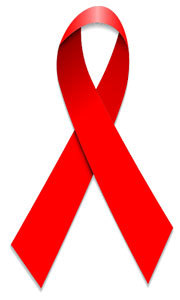HIV conundrum continues but Africa is making progress, says UCT professor
01 December 2014 | Story by Newsroom
As the global community observes World AIDS Day on 1 December 2014, Professor Linda-Gail Bekker, new president-elect of the International AIDS Society (IAS) and Deputy Director of the Desmond Tutu HIV Centre at the University of Cape Town, says the fight against HIV/AIDS is far from over.
"There is always work to be done on stigma, human rights and justice in healthcare and public health. HIV/AIDS needs constant surveillance and advocacy. We now have interventions we can implement. It would be a travesty if people lost interest at this point, and as a result, resources and human capital disappeared just when we really do need all hands on deck," she says.
Professor Bekker will start her tenure at the IAS in 2016. She is keen to highlight progress made in HIV/AIDS treatment and prevention on the continent. She also wants the enormous challenges that Africa still faces in alleviating HIV/AIDS to receive more prominence.
"Our challenges are how to ensure that some of the innovations in the field are scaled up in such a way that they really do begin to turn the curve on the epidemic – not only internationally but also here in Southern and East Africa where the brunt of the burden is," she says.
Professor Bekker explains that these African regions' health systems are not universally robust; this is a result of limited health expenditure. However, the IAS holds tools that could help boost resources in these areas, including: improved antiviral treatment; antiviral treatment in new prevention modalities such as Pre-Exposure Prophylaxis and microbicides; voluntary male medical circumcision; and prevention of maternal transmission.
"We still have some conundrums, such as how to achieve permanent viral remission, manage HIV-positive adolescents better and prevent HIV in young women," she says.
Professor Bekker adds that challenges around implementation of novel interventions still prevail, including how to ensure that large numbers of people safely take antiretroviral drugs and then maintain viral suppression.
"The treatment cascade needs work in just about every region of the world and in every population. Also, how do we get prevention messages out to key populations such as sex workers and people who use and inject drugs, and to the incarcerated and migratory populations?" she asks.
The leading research specialist believes there are lessons that can be taken from HIV/AIDS treatment into primary healthcare that will benefit other areas of public health programming and primary health.
"There is an enormous amount to learn about how we strengthen our health systems generally to ensure that care and prevention of HIV, as well as HIV co-infections such as tuberculosis and sexually transmitted diseases and viral hepatitis, can be fully integrated into those health systems."
Media release issued by Kemantha Govender, UCT Communication and Marketing Department. Email: Kemantha.Govender@uct.ac.za
 This work is licensed under a Creative Commons Attribution-NoDerivatives 4.0 International License.
This work is licensed under a Creative Commons Attribution-NoDerivatives 4.0 International License.
Please view the republishing articles page for more information.










